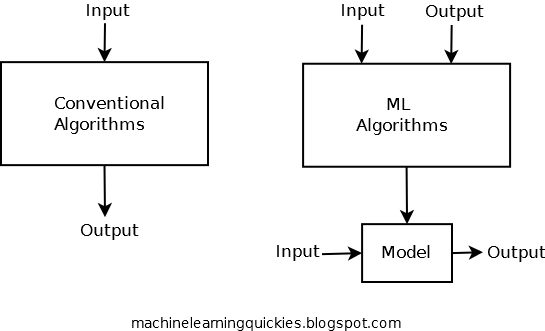Conventional Algorithms vs. ML algorithms
Starting on the journey of Machine Learning and Data Science, one of the most common thoughts that come to the mind is the difference between machine learning algorithms and conventional/traditional algorithms.
Are ML algorithms any different to the traditional ones we use?
If so, how are ML algorithms different from the conventional ones?
The answer is rather simple. Yes, ML algorithms are indeed different from the traditional algorithms. Traditional algorithms like searching, sorting, etc., follow a similar format. They typically take an input, follow some steps as per the algorithm and then give an output. The output is rather deterministic meaning that for a single unique input you will get the same output every time. For example, if you input a sequence to some sorting algorithm, it will return the same sorted output sequence no matter how many times you run it. On the other hand, ML algorithms don't follow this traditional format. They generally require to be fed both input and output instances through which they will train and return an output model. This output model can then be used in the traditional format where you give it input and it gives you output like in a classification or regression task. Also, the output of an ML algorithm is rather non deterministic meaning that every time you retrain the model (either on the same data randomly or different data), you will get a different output model which will in turn give you different output value for the same input. These differences are especially prominent in Supervised Learning whereas non-determinism is there even in other forms of learning.
 |
| Conventional algorithms vs. Machine Learning algorithms |
- Conventional algorithms take in input and give output whereas ML algorithms take in both input and output instances to train model which will then take in input and give output.
- Conventional algorithms are deterministic in nature meaning that they will give the same output for the same input every time you run them whereas ML algorithms are non deterministic in nature (giving different outputs for the same input every time you run them).

